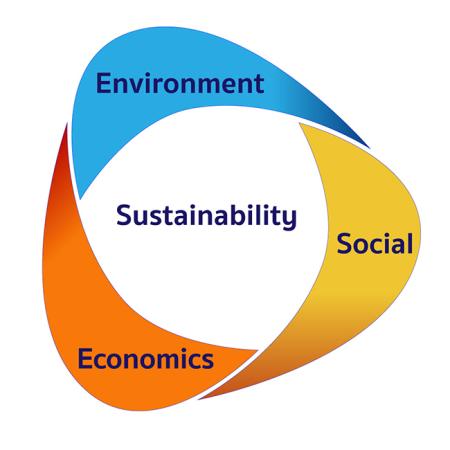Sustainability refers to the ability to maintain or improve certain essential processes, systems, and activities over the long term without depleting the resources or causing harm to the environment or social and economic systems upon which these depend. It commonly encompasses three main pillars:
- Environmental Sustainability: This involves managing natural resources to prevent degradation of the Earth’s ecosystems and to preserve the environment for future generations. It includes efforts to minimize pollution, reduce waste, conserve natural habitats, and maintain biodiversity.
- Economic Sustainability: This pillar focuses on supporting long-term economic growth without negatively impacting social, environmental, and cultural aspects of the community. It involves practices that ensure businesses and economies operate in a way that is financially viable, equitable, and efficient for a prolonged period.
- Social Sustainability: This aspect emphasizes the importance of maintaining and improving the well-being of individuals and communities. It involves ensuring access to basic resources, equity, participation in society, and the promotion of social cohesion and inclusion.
These pillars work together to ensure that development meets the needs of the present without compromising the ability of future generations to meet their own needs, embodying the principle laid out in the definition of sustainable development from the Brundtland Commission of the United Nations in 1987. This holistic approach promotes long-term ecological balance, encourages responsible resource management, and fosters social and economic stability. All three pillars should be part of any decision making to ensure sustainable development for the future – make own figure – change equity to social.

